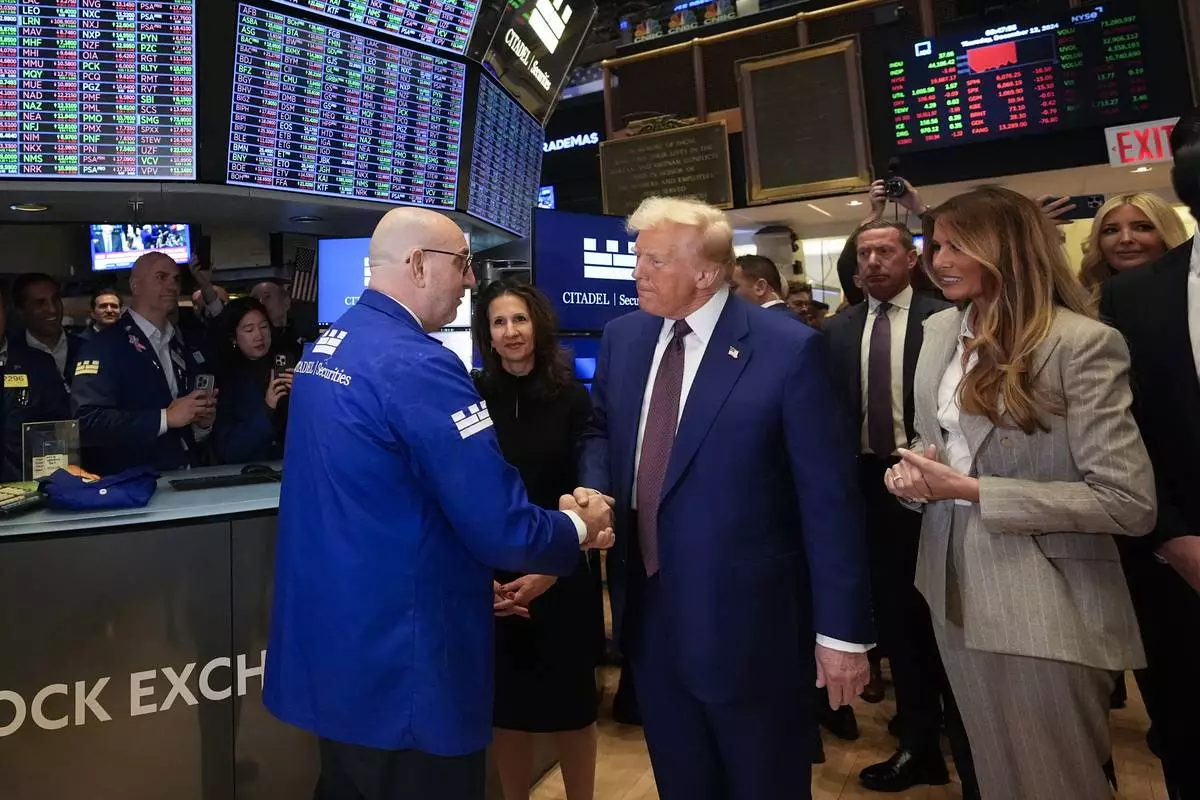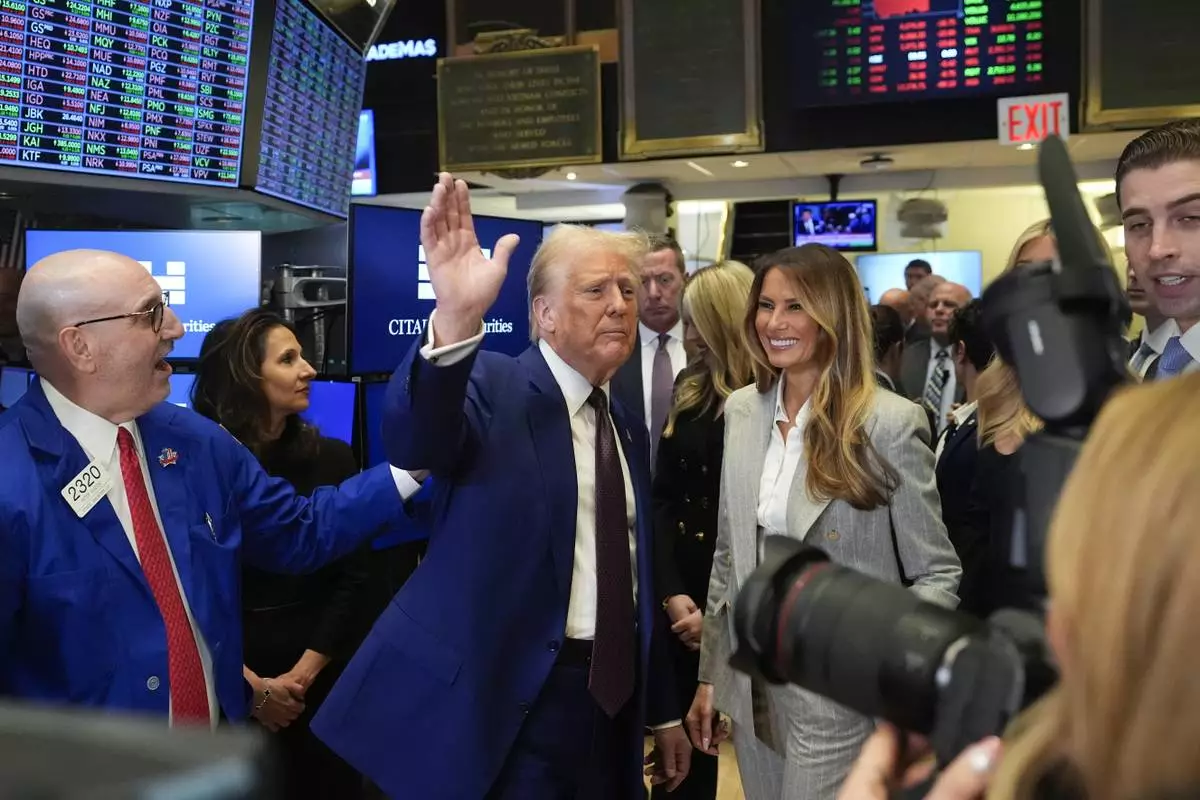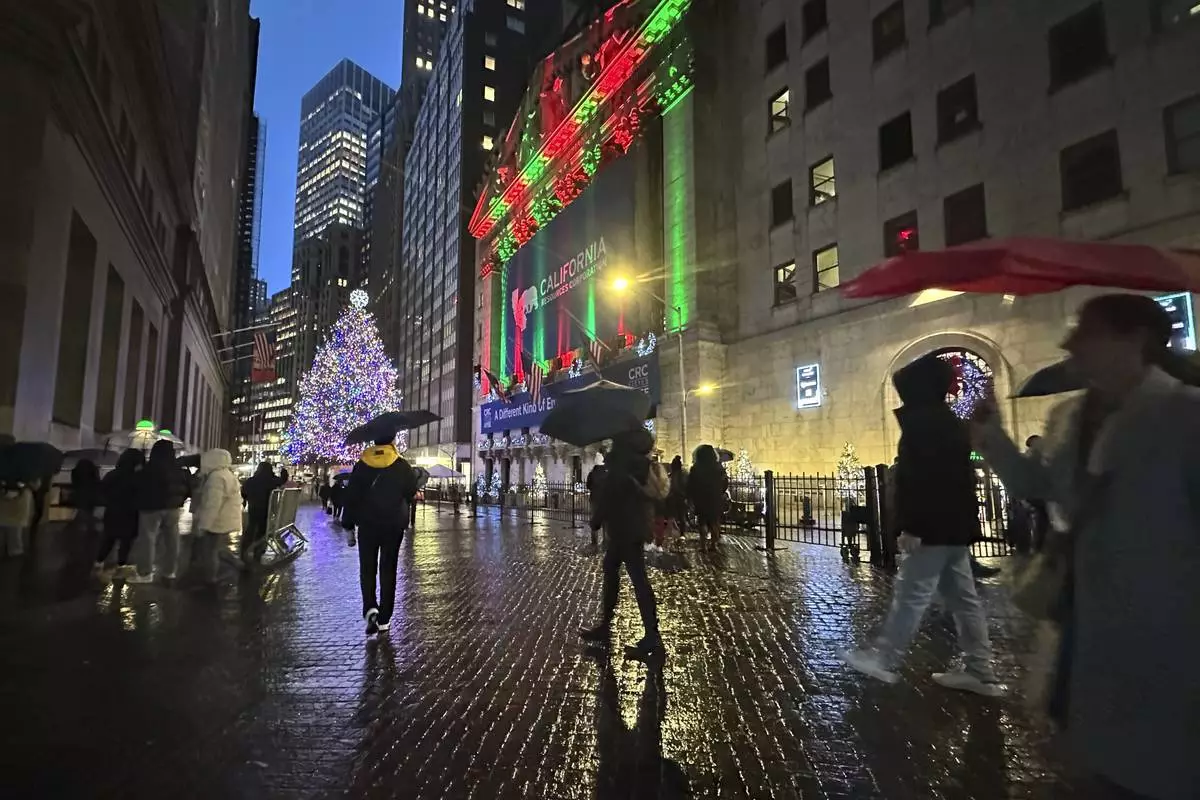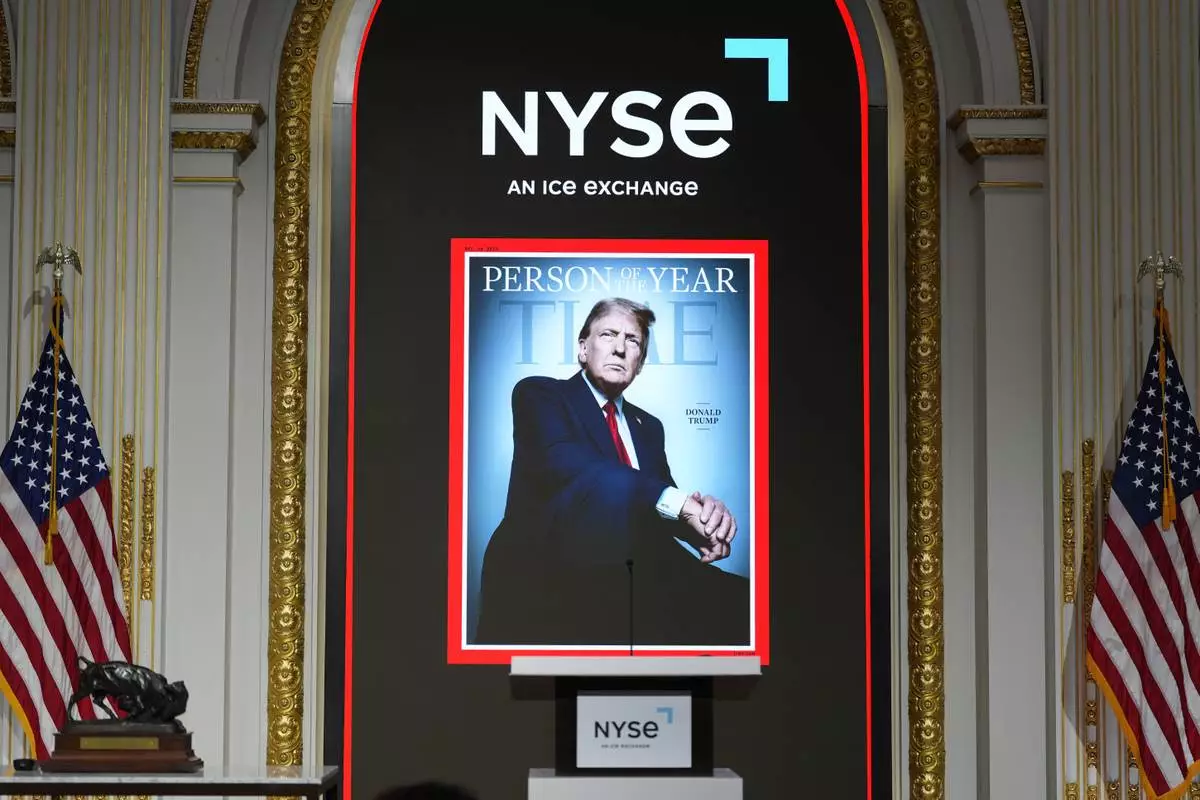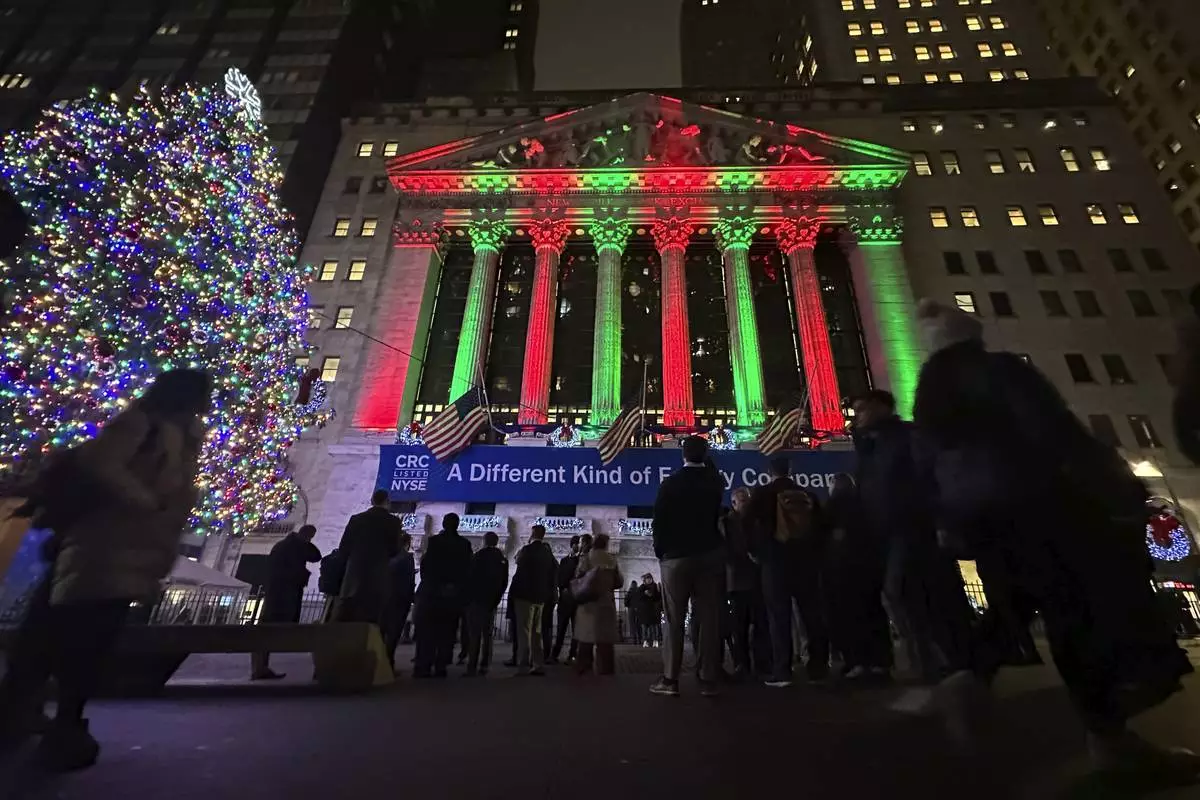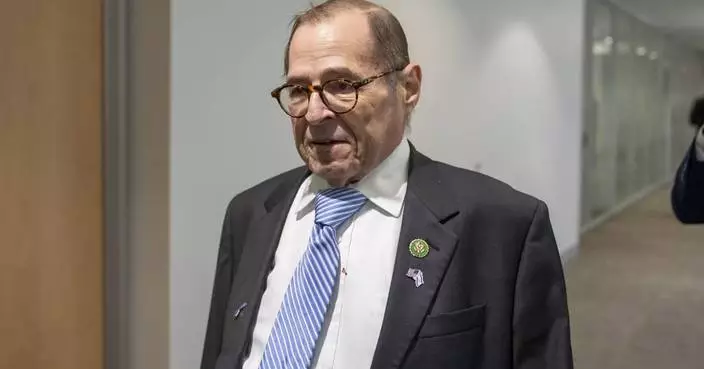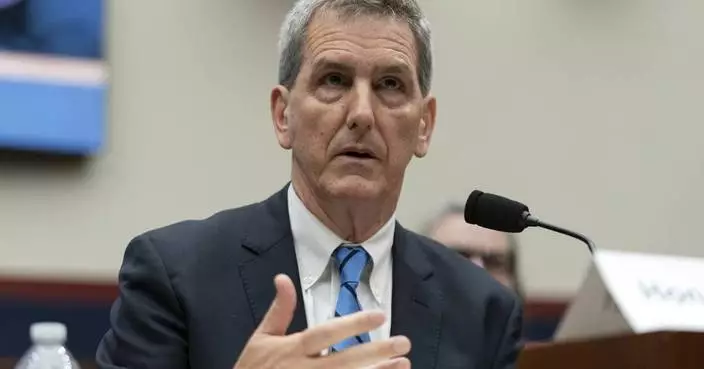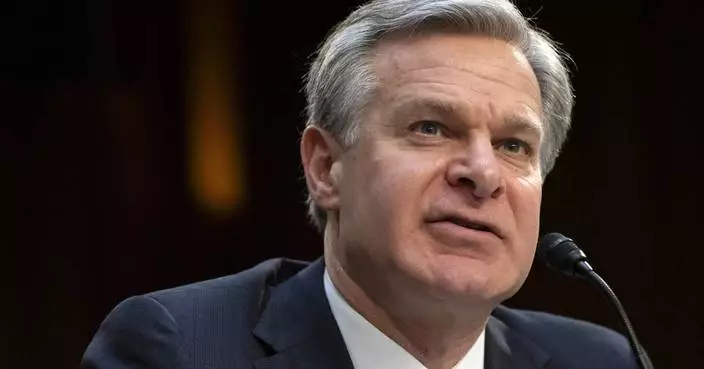NEW YORK (AP) — A nonprofit law group dedicated to protecting the rights of Southern voters of color had more on its plate this year than just the 2024 presidential election.
The Southern Coalition for Social Justice supports voter registration drives and monitors election certification. Staff attorneys help run a legal hotline for voting irregularities. Teams challenge electoral maps and restrictive laws deemed unfair. It's costly, year-round work that senior counsel Mitchell Brown considers vital to participatory democracy — but also work that gets less attention outside of high-profile campaign cycles.
“A lot of people exert a lot of energy during the presidential year and it falls off for the next three to four years," Brown said. "That can’t happen. Because there’s a lot of changes that are occurring in between those four years between presidential elections.”
“There are no more off years anymore," he added.
The coalition benefited this spring from a progressive philanthropic network organized around the belief that democracy is an exercise — not a given — in need of constant support. Led by eBay founder Pierre Omidyar’s Democracy Fund, petitioners pledged to reverse existing boom-and-bust dynamics where money floods politically engaged nonprofits late into election years only to dry up afterward. Beginning with the “All by April” campaign to move money early, the effort is continuing with the “Election Day to Every Day” push to shore up next year's funding.
However, according to interviews with other nonprofit leaders in the left-leaning civic space, the philanthropic sector at large has not heeded the call. For the nonprofit leaders experiencing budgets as usual, the anticipated pattern of funding drop-offs is raising stakes many leaders felt were already heightened by the fraught political climate.
With reported security threats and staff burnout, Democracy Fund President Joe Goldman said it's especially inefficient to spend millions training people, developing skills and creating a knowledge base only to cut nonprofit budgets and "throw it away.” Despite what Democracy Fund said was widespread agreement that democracy is under threat, the organization found that many funders had no plans before September to help grantees prepare for the post-election environment.
“We need to show them that we've got their backs," Goldman said.
Grassroots nonprofits — both “501(c)3" groups, named after the tax code section they were organized under, which are restricted from party politics altogether, and “501(c)4" organizations, which are allowed limited partisan activity — believe their bottom-up approach positions them well to engage their communities in local politics.
That might take the form of deep canvassing. Unlike political canvassers who knock on doors and call numbers to sway votes, deep canvassers have longer conversations with strangers about their concerns and desires. The idea is to form connections that eventually change hearts and minds on divisive topics. Or, it might look like mobilizing residents around single issues in their backyards.
Groups that spent 2020 doing such work felt drained afterward, according to Women Donors Network President Leena Barakat, whose group signed the Election Day to Every Day petition. The election had high turnout. But money and energy were depleted, she said, and there was scant capacity for sustaining political engagement with democratic processes. By the time 2024 rolled around, many civically-minded nonprofits were still playing catch up with their staffing levels. Any financial windfall this year wouldn’t have been enough to effectively organize in just six months.
“They don’t show up for just an election day. They are there to really understand and meet the needs of their community year-round,” said Women Donors Network President Leena Barakat, whose group signed the Election Day to Every Day petition. “To just fund them around elections is incredibly transactional and less effective in the work that we are trying to do. Change moves at the speed of trust.”
The effort's proponents suggest financial backing to form those ties is limited in part because the work goes unseen to funders. Philanthropists tend to prefer projects that can be measured easily and quickly, the National Committee for Responsive Philanthropy Senior Research Manager Katherine Ponce noted. But Ponce said the work of relationship development and trust building is difficult to quantify and happens slowly.
Explicitly electoral work understandably gets a lot of resources during election years, according to Alice Evans of the Southeast Immigrant Rights Network. It makes sense to focus on efforts like get-out-the-vote events, she said, but it also makes it harder for SIRN to support what she called “very democracy-related work.” The nonprofit coalition of more than 50 immigrant- and refugee-led groups provides leadership trainings for the heads of immigration-focused organizations and “Know Your Rights” toolkits for their communities.
Evans, who oversees fundraising, said she is bracing for organizing conditions to grow “more hostile” under the incoming Trump administration; SIRN is preparing a “rapid response fund” in anticipation of immigration crackdowns.
“In order for a democracy to function and be healthy, we need people understanding their rights," Evans said. "Understanding and taking up their part in co-creating democracy. And instead, I think often these days, it feels like we often understand democracy as this transactional thing that we sort of receive.”
DoSomething is a nonprofit that encourages youth participation by providing opportunities to volunteer and organize. But DoSomething CEO DeNora Getachew said funders told her that youth are not a strategic investment despite 41 million Gen Z members being eligible to vote this year.
Money flowed across the philanthropic sector during the first half of the year, DoSomething Vice President of Development Katie Tynes said, but the overall spigot seemed to tighten in the second half. Tynes said she also saw funding shift from 501(c)3s to 501(c)4s. While there’s room for both types of tax-exempt organizations, she said, it was troubling because the former tend to do more people-centered work on the ground whereas the latter have more political agendas.
Speaking anecdotally, Getachew said she saw a decline this year in funding for nonprofit groups like hers focused on evergreen civic engagement.
“This very cyclical, very transactional rush to register young people to vote, get them to turn out to vote and then bid them adieu in those in-between years — if we don't develop the civic muscle of young people early and then ensure that they practice that muscle consistently, I think we're going to have a big challenge with the viability of our democracy long-term,” she said.
Still, the “All by April” campaign claimed some success. Democracy Fund reported sparking $79 million in new 501(c)3 grants for election-related work and $61 million in money disbursed sooner than planned. Brown said the Southern Coalition for Social Justice was able to hire three new attorneys with the influx of donations spurred by the springtime push to provide funding earlier into the election cycle.
But two of them are fellows, he said, and SCSJ has an expanded docket of redistricting cases to maintain.
Associated Press coverage of philanthropy and nonprofits receives support through the AP’s collaboration with The Conversation US, with funding from Lilly Endowment Inc. The AP is solely responsible for this content. For all of AP’s philanthropy coverage, visit https://apnews.com/hub/philanthropy.

Mitchell Brown poses for a photograph, Wednesday, Dec. 11, 2024 in Washington. (AP Photo/Nick Wass)
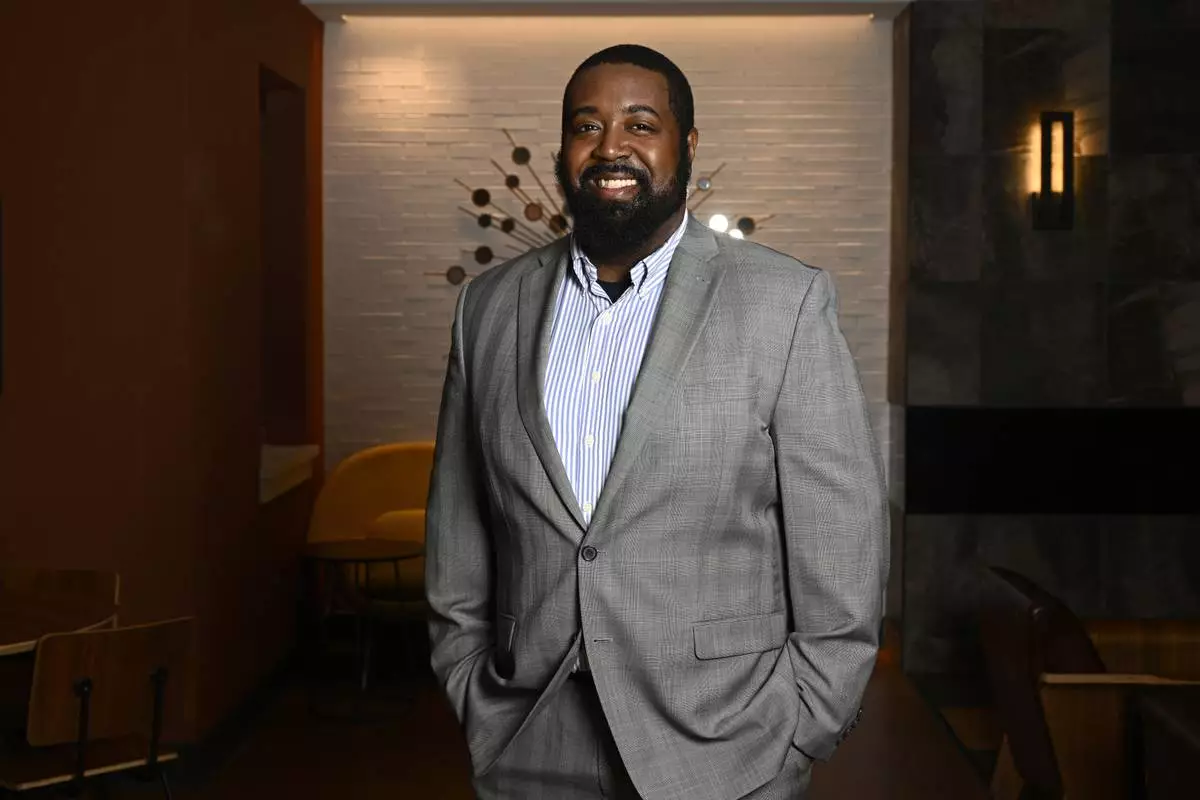
Mitchell Brown poses for a photograph, Wednesday, Dec. 11, 2024 in Washington. (AP Photo/Nick Wass)
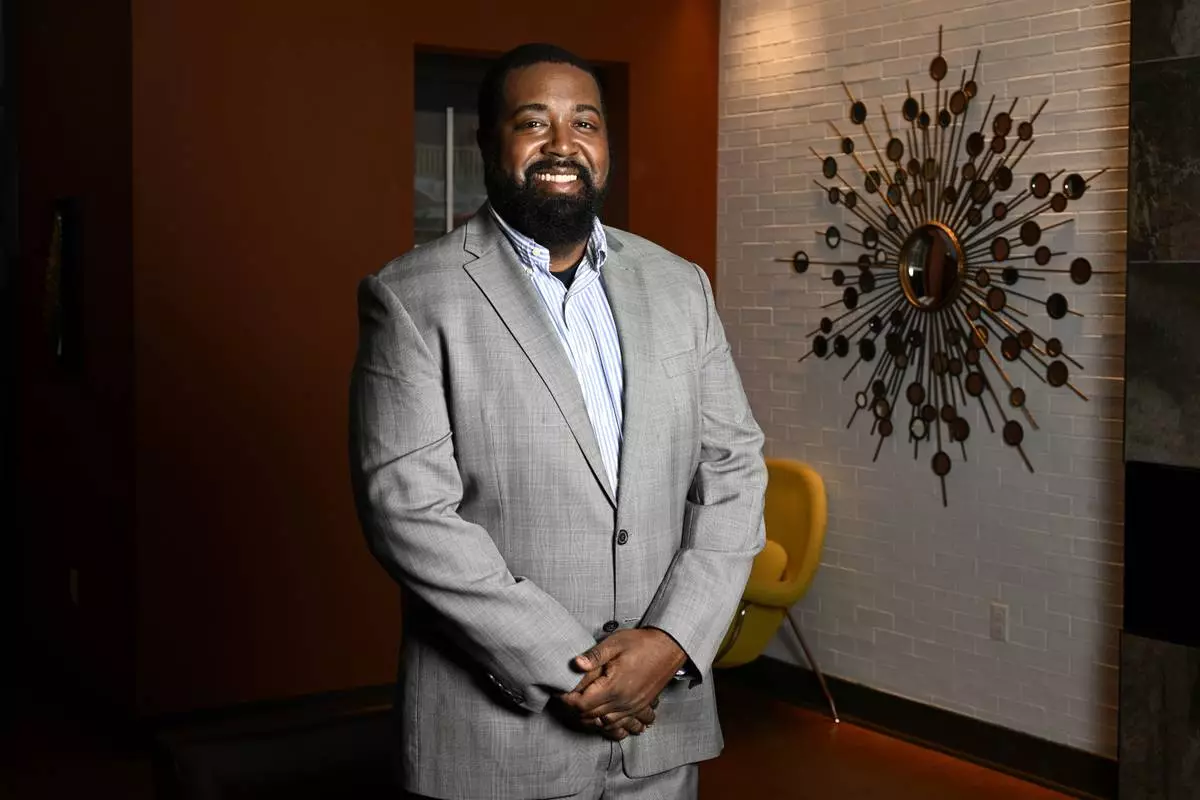
Mitchell Brown poses for a photograph, Wednesday, Dec. 11, 2024 in Washington. (AP Photo/Nick Wass)
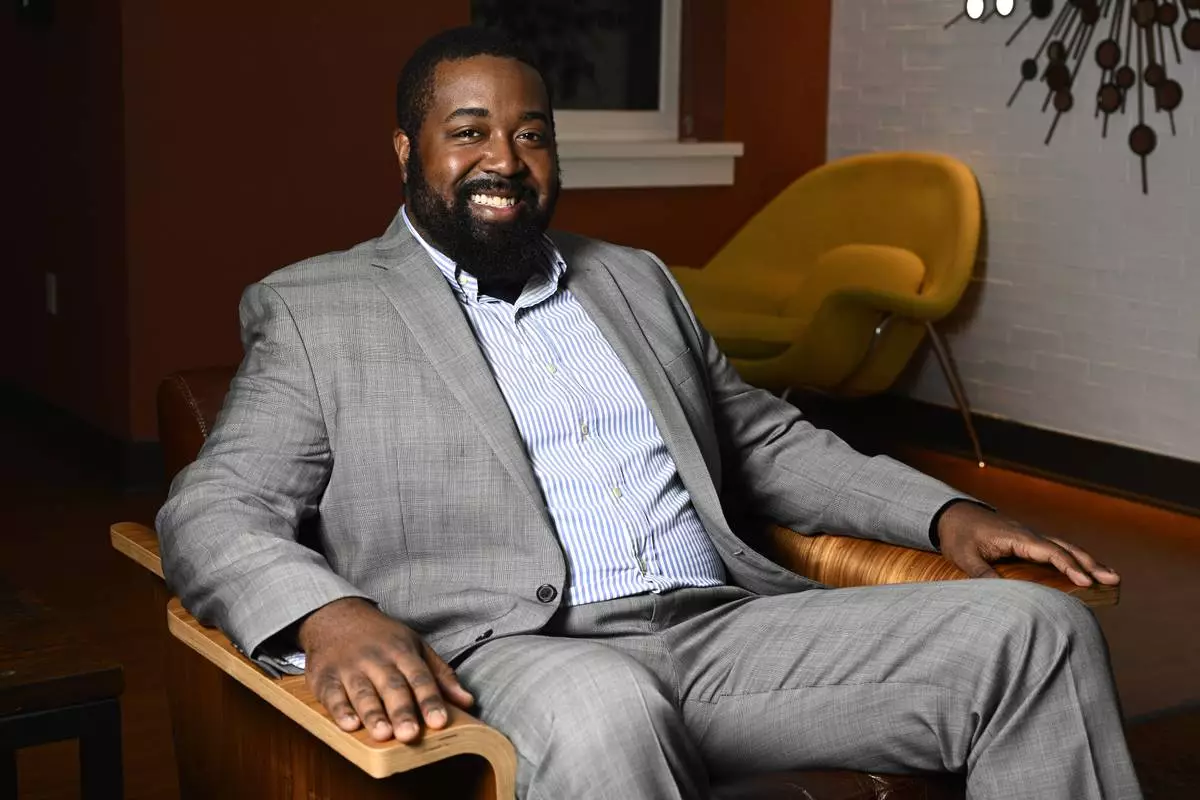
Mitchell Brown poses for a photograph, Wednesday, Dec. 11, 2024 in Washington. (AP Photo/Nick Wass)

Mitchell Brown poses for a photograph, Wednesday, Dec. 11, 2024 in Washington. (AP Photo/Nick Wass)

Mitchell Brown poses for a photograph, Wednesday, Dec. 11, 2024 in Washington. (AP Photo/Nick Wass)

Mitchell Brown poses for a photograph, Wednesday, Dec. 11, 2024 in Washington. (AP Photo/Nick Wass)










